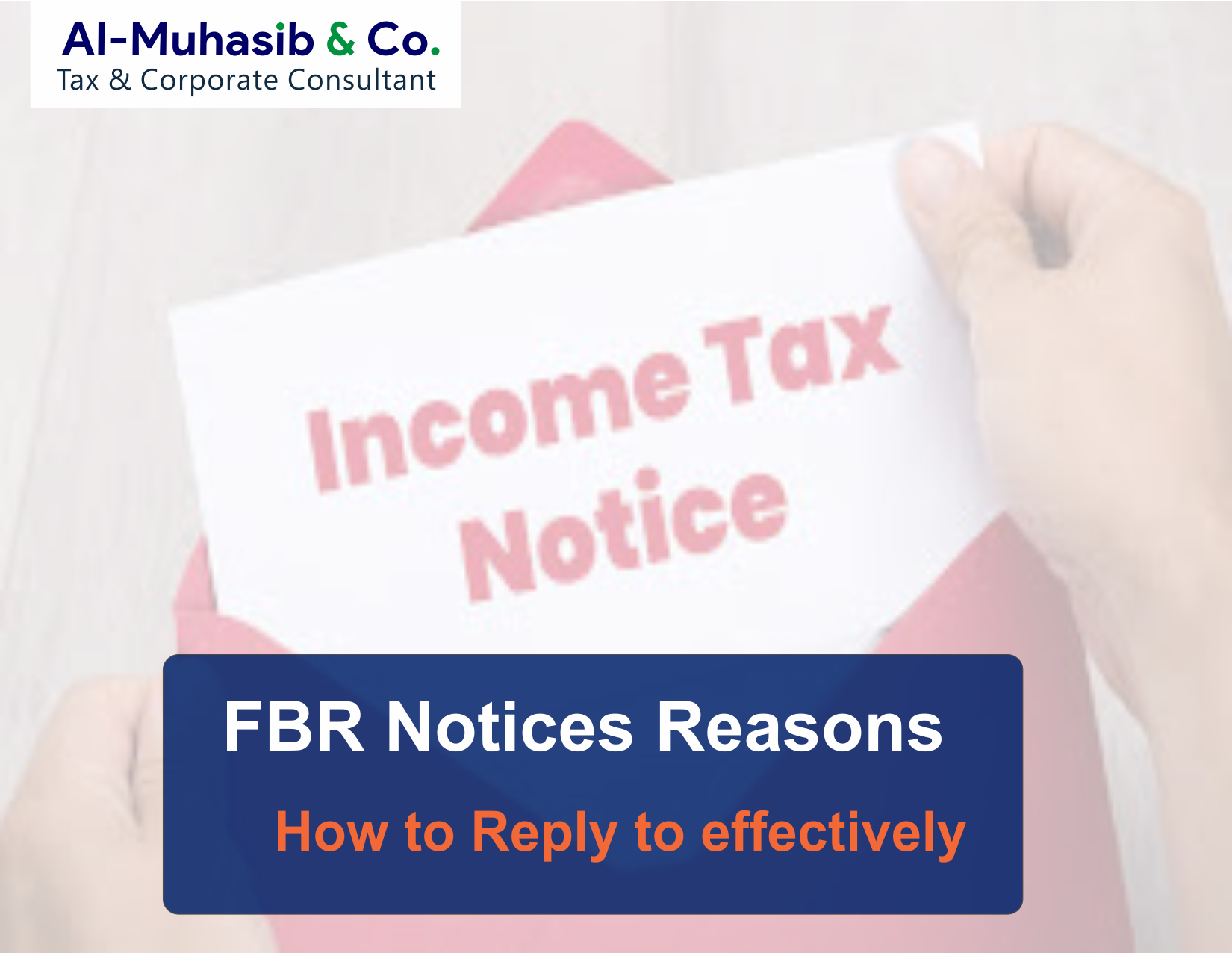 FBR Notices Types, Reasons and How to Reply to effectively? You must have heard about FBR notices often. In this blog, we will discuss how many types of FBR notices there are, why they are issued, and what is the correct way to respond to them effectively.
FBR Notices Types, Reasons and How to Reply to effectively? You must have heard about FBR notices often. In this blog, we will discuss how many types of FBR notices there are, why they are issued, and what is the correct way to respond to them effectively.
Notice to File Return
This is the most common notice. In this, the department simply reminds the taxpayer that you have not filed your tax return yet.
Simple way to reply to this:
The solution is to File your income tax return.
If you file your return after the due date, a penalty may be imposed under Section 182, which is usually up to Rs. 20,000.
However, if a taxpayers don’t have to pay any taxes along with filing their then fine cannot be imposed because there is no revenue loss to the government due to your non-filing of returns.
For example, in case of a salary the tax has already been deducted, then there is no financial loss to the government despite the delay.
However, if you file your return late every year or do not do it intentionally, the tax officer may impose a penalty on you.
Notice to obtain information or evidence section 176
This notice comes when the FBR asks you for documents or evidence in a case.
For example:
If you have declared “Gift” in the return, the FBR may ask who the gift giver is, whether he has also filed his return, and where is the gift deed or evidence.
If you have shown “Foreign Remittance”, then bank statement and PRC (Persuaded Receipt Certificate) may be sought.
If you do not provide the required evidence, the FBR may declare these amounts as your “Income” and impose tax on them.
These notices cannot be ignored. If you do not respond, the FBR may take further action and issue a Ex-parte order.
Notices under Section 111 Unexplained income or assets
These notices are issued when the FBR has clear information that shows that you have not properly disclosed your income, sales, assets or hide anything.
For example:
If you purchased a property worth Rs. 2 million during 2025 but did not mention it in your return, the FBR may ask you where this money came from.
If you cannot explain, the FBR will consider this amount as your “Unexplained Income” and will impose tax on it.
FBR Notices Types, Reasons and How to Reply to effectively?
One way to respond is that if the taxpayer has not disclosed the full wealth in his returns, he can revise his wealth statement and explain to the tax officer with evidence that the investment was made with his own taxed money. However, the wealth statement cannot be amended after the lapse of five years.
Amendment of assessments 122(5A) and 122(9)
Notice 122(5) comes when the FBR believes that you have misrepresented or under-declared or discrepancy is found in the return.
Requirements to Amend assessment
Notices under this section can be issued only within six years of the filing of the return.
Furthermore, the tax officer shall decide or pass an assessment order within one year after the notice is issued.
If the order is issued after the expiry of the prescribed period, all orders issued under this section after one year shall be deemed to be void.
If Notice under section 122(9) has been issued, then the approval of the Commissioner is required to revise the return.
How to Reply Amendment of assessments 122(5A) and 122(9) Notices
There is no set or hard and fast rule for responding, but rather each notice has to be reviewed and dealt with on a case-by-case basis.
177 Notice (Audit Notice)
This notice comes when the FBR chooses to audit you.
In this, the tax department can ask you for all records, invoices, bank statements, proof of purchase and sale, salary records, etc.
According to the law, the taxpayer is required to preserve all his records for six years.
If you ignore the audit notice, then the authorised officer issues an Ex-parte Order, which may impose additional tax demand.
To comply with provide all relevant records
Some important tips to avoid notices
Always file your income tax return on time.
Preserve all records for at least six years.
Never make false statements or declare fictitious expenses, assets or sales
Always get the return prepared by a trusted professional a low fee can lead to more losses later.
If you need help regarding any FBR notice, please contact us through our website by filling out the Contact Us form, or reach out via our social media accounts.


